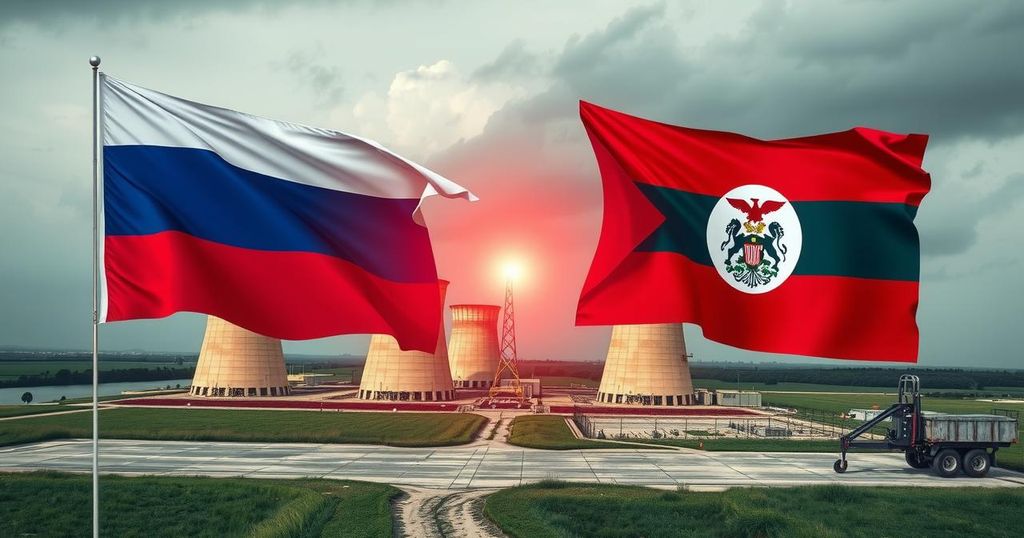Burundi has signed a nuclear cooperation agreement with Russia during the Russia-Africa Economic and Humanitarian Forum. The deal aims to enhance Burundi’s nuclear infrastructure, ensure safety regulations, and promote radiological research and personnel training. This initiative is part of a broader trend among African nations seeking to advance nuclear technology for peaceful uses, with Russia playing a central role in these developments.
Burundi has formally entered into a nuclear cooperation agreement with Russia, solidified during the ongoing Russia-Africa Economic and Humanitarian Forum in St. Petersburg. The Memorandum of Cooperation (MoC) was signed by Burundi’s Minister of Foreign Affairs and Development Cooperation, Albert Shingiro, and Rosatom’s Director General, Alexei Likhachev. This agreement is set to facilitate various projects aimed at enhancing Burundi’s nuclear infrastructure, ensuring compliance with legal regulations related to nuclear safety, and expanding capabilities in radiation technologies, nuclear medicine, and personnel training in the nuclear sector.
As part of this collaboration, a joint coordination committee will be established, enabling the exchange of experts, scientific data, and technical resources. The agreement will also encompass the production and utilization of radioisotopes in industries such as medicine and agriculture. Prior to signing the agreement, a delegation from Burundi, led by President Evariste Ndayishimiye, visited the Leningrad nuclear power plant, emphasizing the significance of this collaboration in attaining energy security under the Burundi-2040 project.
Burundi has a history of engaging with nuclear energy initiatives; it signed its first Country Programme Framework with the International Atomic Energy Agency in 2016, followed by the introduction of a bill to ensure the safe use and regulation of nuclear energy in 2019. Several other African nations are in similar discussions with Russia concerning the peaceful utilization of nuclear technologies. During the forum, President Vladimir Putin also mentioned ongoing negotiations with Ethiopia and Zimbabwe aimed at enhancing nuclear cooperation.
The agreement between Burundi and Russia forms part of a broader initiative by several African nations to explore nuclear energy technology, particularly for peaceful applications. With a rising interest in achieving energy independence and security, countries like Burundi view nuclear technology as a viable solution. Russia, through its state nuclear corporation Rosatom, has actively participated in various partnerships to promote the peaceful use of nuclear energy across the continent, exemplified by ongoing projects in Egypt and discussions with nations including Zimbabwe and Ethiopia. This backdrop underscores the growing collaboration and shared goals among these countries in advancing nuclear energy initiatives.
In conclusion, the recent agreement between Burundi and Russia marks a significant step in enhancing Burundi’s nuclear capabilities and ensuring energy security. With a focus on infrastructure development, safety regulations, and technical collaboration, this partnership reflects a strategic effort by Burundi to secure a sustainable energy future. Furthermore, it underscores a growing trend across Africa to embrace nuclear technology for peaceful purposes, highlighting Russia’s pivotal role in facilitating these advancements.
Original Source: world-nuclear-news.org






